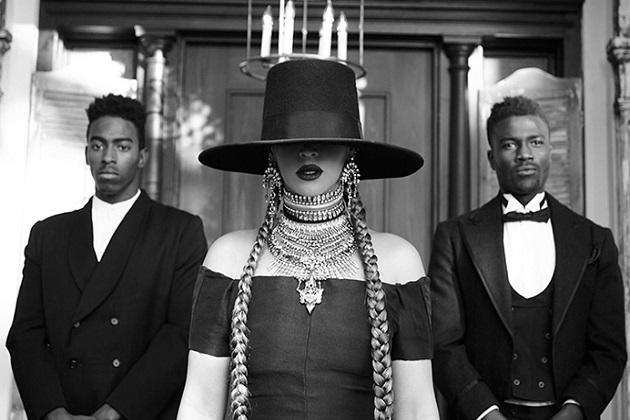Beyoncé is Black Not Anti-police
February 26, 2016
In his Allegory of the Cave, Plato discusses and cautions against the inaccuracies of perceived truths. He suggests that what most people tend to see are, but shadows of real forms. As a majority, society is stuck in a cave with fire and shadows. We face the wall that has shadows and rarely turn our heads back to see the truth.
In light of recent and occurring events regarding racism and other forms of discrimination, Plato’s piece should not be taken just as a philosophical statement, but as a cautionary tale that has held relevancy since its conception.
Shadows
Michael Brown. Trayvon Martin. Black Lives Matter. Mizzou. Mario Woods. The number of racial controversies brought up in recent years is inundating. We all know the headlines. Black teen gets shot. Blacks receive unfair treatment at X University. Celebrity Y issues racist rhetoric.
These events occur so frequently and on such a repetitive basis that they’re no longer outliers in the distribution curve, but the average, the norm. Prejudice has become normalized and, as is so often the case with things that are normal, we don’t question it. Or when we do so, the question is hardly the right one.
Take for example the chatter surrounding Beyoncé’s recently released single, “Formation.” With a music video and a Super Bowl halftime performance that freely embraces B’s heritage and culture, the song has received less than positive responses. One of the main issues regarding the song is that it pays its respect to Trayvon Martin.
Seconds of the video depict a young boy breakdancing with a hood in front of several police officers. Javier Ortiz, head of the Miami Fraternal of Police (MFOP), is one of the many that has interpreted this scene as anti-police. Ortiz, in an MFOP press release, stated that “Beyoncé used this year’s Super Bowl to divide Americans by promoting the Black Panthers and her antipolice message shows how she does not support law enforcement.”
Ortiz isn’t alone in his sentiments, besides the MFOP, an anti-Beyoncé rally was held on February 16th by protestors who “disagreed” with her half-time performance. Not surprisingly, very few people attended and soon the anti-rally just became a rally for Beyoncé.
The true detriment that springs out of a response, such as the one from Ortiz, is that for a lot of people, “Formation,” is transformed from being identified as a black artist’s homage to her roots to now being an anti-police and criminally incendiary record. The question about “Formation” is no longer “What is this to the Black community?”, but rather “The Black community is this.” Instead of allowing the community and its people for which the song was written to and for, define “Formation,” we have promptly done so already. These are the shadows we currently see and perpetuate.
**Despite the increased attention that racial discrimination has garnered recently, it is important to note that it has existed well beyond the scope of recent years.**
Looking at the Fire and Getting Out of the Cave
There isn’t a single easy path to stopping racism. If there was then this article wouldn’t be in existence. However, the first step in amending any sort of problem is by recognizing that there is one.
It is 2016 and there is still racial bias in the “land of the free.” This prejudice is pervasive and goes beyond the two-dimensional crime statistics that we so frequently think of when addressing the issue.
In a December Supreme Court hearing featuring University of Texas and race in its admissions, the late Supreme Justice Scalia stated,
“There are those who contend that it does not benefit African-Americans to get them into the University of Texas where they do not do well, as opposed to having them go to a less-advanced school, a less — a slower-track school where they do well.”
Scalia’s statement is a first-hand demonstration that racial prejudice exists even in the uppermost ranks of our government. Like Ortiz, Scalia and his sweeping generalizations of the black community are what continue to perpetuate inaccurate racial definitions.
See something? Talk about it. In this day and age of social media, it’s not enough to be cognizant of inequality, the least we can do is talk about it.
With #blacklivesmatter and #Mizzou, as well as many other internet trends, the world has seen the power of a hashtag. Despite the 140 character limit, the conversation has broadened to a point where it just takes wifi and a social media account to start a revolution.
Prejudice will always be present. No matter how much effort we put in, there will always be the few and the many, but what’s important is that we continue to blur the line between the two.
-MC
